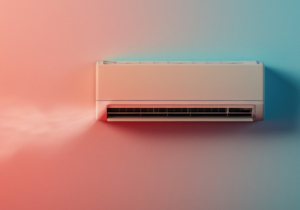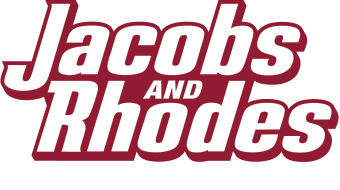What’s That Sound? Identifying Strange HVAC Noises in the Winter
 Winter is here, and with it comes the comforting hum of your HVAC system working hard to keep your home warm and cozy. But what happens when that familiar sound is joined by strange, unexpected noises? Unusual HVAC sounds are often your system’s way of telling you something is wrong. Ignoring these warnings can lead to bigger problems, costly repairs, or even complete system failure.
Winter is here, and with it comes the comforting hum of your HVAC system working hard to keep your home warm and cozy. But what happens when that familiar sound is joined by strange, unexpected noises? Unusual HVAC sounds are often your system’s way of telling you something is wrong. Ignoring these warnings can lead to bigger problems, costly repairs, or even complete system failure.
Let’s break down the most common noises your HVAC system might make during winter, what they mean, and what you can do about them.
1. Banging or Thumping
- What it sounds like: A loud, repetitive bang or thud coming from your HVAC system.
- What it might mean:
- Loose or broken parts in the blower assembly or motor.
- An unbalanced blower fan that’s hitting against other components.
- Ductwork expanding and contracting due to temperature changes.
What to do:
If the noise is persistent, turn off your HVAC system and call a professional. Loose or broken parts can cause further damage if left unaddressed. While duct expansion noises may be harmless, a professional can inspect your system to ensure there are no underlying issues.
2. Whistling or High-Pitched Screeching
- What it sounds like: A sharp, whistling noise or a high-pitched squeal.
- What it might mean:
- Restricted airflow due to a clogged air filter.
- A malfunctioning blower motor belt that’s worn or misaligned.
- Air leaks in your ductwork.
What to do:
Start by checking and replacing your air filter if it’s dirty. A clean filter improves airflow and system efficiency. If the noise persists, schedule an inspection. A worn motor belt can snap and lead to bigger problems, while air leaks in ducts can waste energy and increase heating costs.
3. Rattling or Clanking
- What it sounds like: A rattling or clanking sound, often metallic.
- What it might mean:
- Loose screws or panels in your HVAC system.
- Debris in the blower or other components.
- A failing motor or compressor.
What to do:
First, ensure all screws and panels on your HVAC system are securely fastened. If the noise continues, turn off the system and inspect for debris. For anything involving the motor or compressor, it’s best to contact an HVAC technician. Delaying repairs could lead to a costly breakdown.
4. Humming or Buzzing
- What it sounds like: A low hum or buzz coming from your HVAC unit.
- What it might mean:
- Electrical issues such as a failing capacitor or relay switch.
- A motor that’s struggling to start.
- Loose wiring or connections.
What to do:
Electrical problems should be handled by a professional. Turn off your system to avoid further damage and potential safety hazards. A technician can diagnose and fix the problem quickly, ensuring your system runs efficiently.
5. Clicking
- What it sounds like: Repeated clicking noises, especially during startup or shutdown.
- What it might mean:
- A failing thermostat or control board.
- A faulty ignition system in a gas furnace.
- Loose or worn electrical connections.
What to do:
If the clicking occurs only once during startup, it’s likely normal. However, continuous clicking could indicate a serious issue. Call a professional to check the electrical and ignition systems.
6. Booming
- What it sounds like: A loud boom or bang when your furnace starts up.
- What it might mean:
- A delayed ignition in your gas furnace caused by a buildup of gas.
- Dirty burners that prevent gas from igniting properly.
- Ductwork expanding due to sudden temperature changes.
What to do:
A booming sound is a clear sign to call an HVAC technician. Delayed ignition can be dangerous and may lead to more severe problems if left unchecked. Regular maintenance, including cleaning your furnace burners, can help prevent this issue.
7. Squeaking or Chirping
- What it sounds like: A high-pitched squeak or chirp, often sporadic.
- What it might mean:
- A dry or misaligned blower motor or fan belt.
- Worn bearings in the motor.
- Initial startup noises if the system hasn’t run in a while.
What to do:
Squeaking during startup may resolve itself after a few cycles, but persistent noise warrants a professional inspection. Replacing worn belts and lubricating components can extend the life of your HVAC system.
8. Hissing
- What it sounds like: A continuous hissing or whooshing sound.
- What it might mean:
- Refrigerant leaks in a heat pump or air conditioner.
- Duct leaks allowing air to escape.
- A valve or compressor issue in the system.
What to do:
Refrigerant leaks are a serious issue that can compromise your system’s efficiency and harm the environment. Turn off your system and contact a professional immediately. Fixing duct leaks can also save energy and reduce heating costs.
Preventative Maintenance: The Best Defense Against Strange Noises
Many HVAC problems can be avoided with regular maintenance. Scheduling annual inspections ensures your system is clean, well-lubricated, and free of worn parts. Additionally:
- Replace air filters every 1-3 months during peak usage.
- Keep vents and registers unobstructed for optimal airflow.
- Listen to your system regularly and address unusual sounds promptly.
When to Call the Pros
While some noises may have simple fixes, others require a professional touch. At Jacobs and Rhodes, we specialize in diagnosing and repairing HVAC issues to keep your system running smoothly all winter long. If your HVAC system is making unusual noises, don’t wait for a breakdown—contact us today to schedule a service appointment.
Stay warm, stay safe, and trust Jacobs and Rhodes for all your HVAC needs this winter.

 Jacobs & Rhodes
Jacobs & Rhodes Jacobs & Rhodes
Jacobs & Rhodes